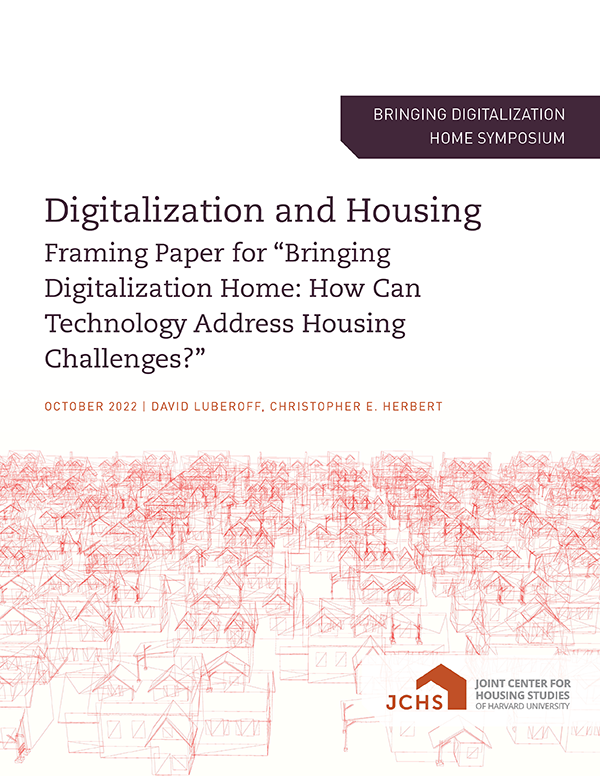Digitalization and Housing: Framing Paper for “Bringing Digitalization Home: How Can Technology Address Housing Challenges?”
Digitalization—the strategic use of technologies that collect, create, process, organize, analyze, use, and monetize data—is changing the ways that housing is produced, marketed, sold, financed, managed, and used in the United States and abroad. These changes have potential to advance—or hamper—efforts to address pressing housing-related economic, social, and environmental challenges, including affordability, segregation, discrimination, gentrification, displacement, resiliency, climate change, changing demographics, citizen participation, equity, and privacy.
Given digitalization’s potential to both alleviate and exacerbate key challenges, there is a critical need to better understand the ways digitalization is changing housing; to assess the impact of those changes; and to explore strategies that would better harness the energy behind the changes to help address key economic, social, and environmental challenges. To spur the discussions on these issues, the Harvard Joint Center for Housing Studies commissioned 11 papers examining how digitalization is affecting key aspects of housing. In March 2022, the papers’ authors presented them at a symposium held at the Harvard Graduate School of Design. The Center has published revised versions of those papers on its website.
This framing paper helps set the stage for those papers by providing background on the digital revolution and on digitalization generally. We then turn to discussions about how digitalization is transforming many key aspects of housing, whether those changes are likely to produce private benefits for those who develop and finance them, and whether they will further key public goals. Drawing on this discussion, we then cover broad approaches that might harness the energy and resources behind these changes to address key challenges (or at least reduce the likelihood that digitalization will exacerbate key problems). We conclude with a summary overview of how authors of the commissioned papers assessed key changes and their ideas on whether and how public, private, and civic actors might respond to those changes. We then draw on these assessments to offer concluding thoughts about the changes, their impacts, and potential responses to them.

